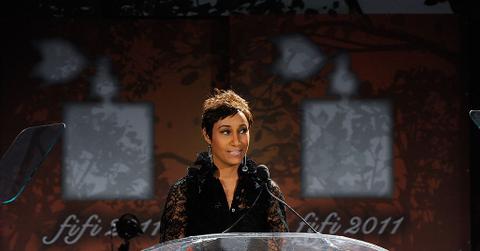
The Evolution of Black Opal Beauty: From Niche to Mainstream
By Ajao ToluwalopeDec. 30 2023, Updated 11:38 p.m. ET
Starting in 1994, Black Opal Beauty was destined to turn the beauty game on its head and give women of color actual choices regarding beauty products. The brand founders were fed up with the generalizations towards Black skin, where brands attempting to offer Black skin care products took one-shade-fits-all approaches with little understanding of the nuances of black skin.
With a deep interest in the unique needs of the diverse shades of Black skin and offering a customized solution to each of them, Black Opal Beauty was well on its way to conquering the beauty landscape.
Spreading Its Wings to the Global Market
Fighting its way through the big players in the skincare game was quite a remarkable journey for Black Opal Beauty, as they had to assert their spot in a highly suppressive market. Talking of having to convince retailers to offer a spot for ethnic beauty brands like them and proving to them that their products were well worth carrying into their stores.
But that didn't go for long; as soon as their products hit the market, it was clear that Black women were willing to spend money on the right products, made specifically to serve them, not just as an afterthought.
More Than Just Makeup
As the brand’s initial products gained traction and appreciation from the users, it was time to serve an even wider audience beyond makeup products. The brand stepped up its offerings into a complete portfolio of cosmetic products.
The brand now features over 250 products, including seven foundation formulations, face powders, lip, and skin care products, available in thousands of retail outlets globally. It caters to the everyday needs of deeply pigmented skin, like brightness, enlarged pores, and hyperpigmentation. And the numbers tell the story. The brand has an estimated annual revenue of $35.5 million, serving over 30 countries.
Authenticity Inside Out
The brand’s unique approach to customer relations has been a crucial part of its growth, creatively navigating the marketing efforts to maintain authenticity and realness in its campaigns. For instance, in 2019, they rolled out the “I Define My Beauty” advertising campaign featuring their employees in photos matching each of them to their respective shades. They also added content detailing each employee’s relationship with makeup. The campaign was a reflection of the brand’s long-standing mission of celebrating multicultural beauty in all its shades and tones.
It operated from the brand's belief that since beauty is so personal, product users would also want to be equally as personal with the people behind the brand’s curtain. This personalized marketing approach has helped them build a solid and loyal online community, boasting over 200,000 followers on Instagram.
The Take Over
In 2019, the brand became an all-Black-owned venture when Desiree Rogers and Cheryl Mayberry took over. To build upon the visionary work of the founders, the duo has been making moves to address the cosmetic needs of people of color. They continue making high-quality, authentic products more accessible to women of color through a brand everyone already knows and loves.
Building on Genuine Care From the Ground Up
Black Opal Beauty's success and longevity in the market speak volumes about the value of genuinely caring about the well-being of your target customers. From the beginning, it was clear about its intention to amplify the beauty of women of color, pushing against the odds to see this through. And the efforts bore fruits. The result: a global-reaching brand with a solid and loyal customer base flourishing in healthy, rejuvenated skin.

